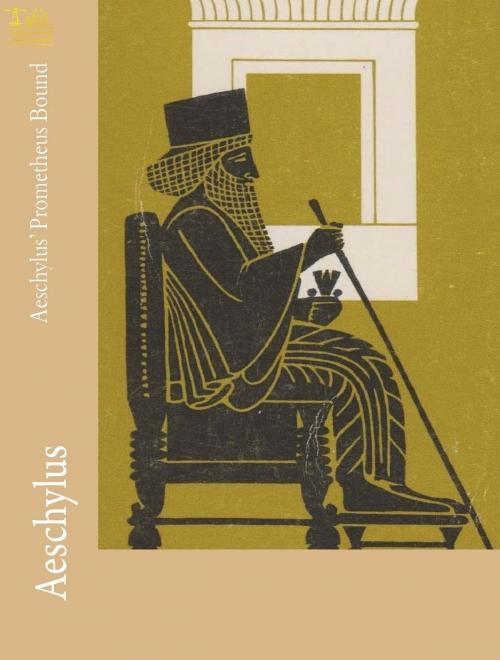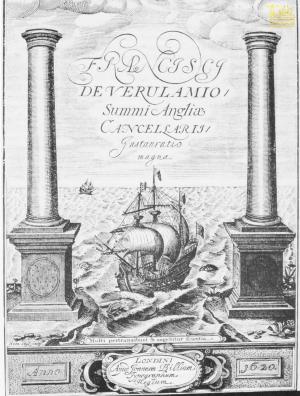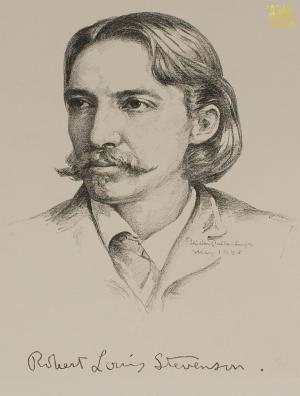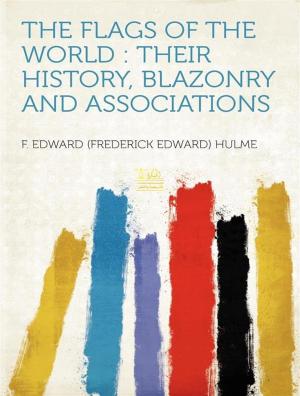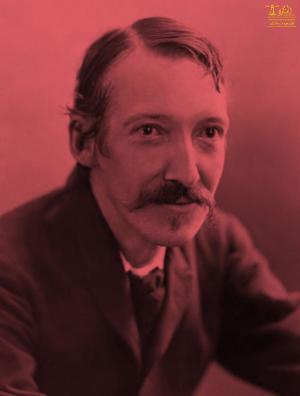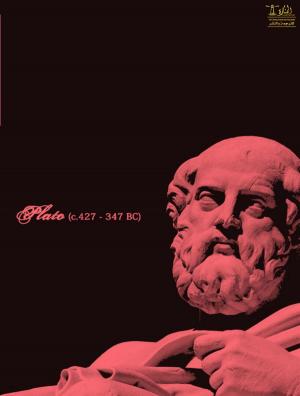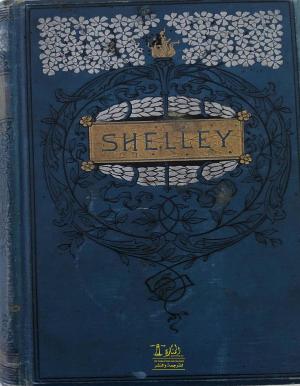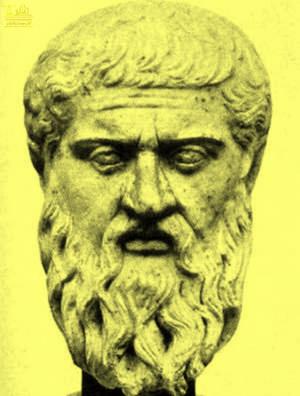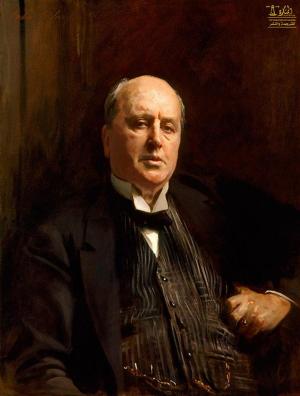| Author: | Aeschylus | ISBN: | 9780599447080 |
| Publisher: | Lighthouse Books for Translation Publishing | Publication: | May 4, 2019 |
| Imprint: | Lighthouse Books for Translation and Publishing | Language: | English |
| Author: | Aeschylus |
| ISBN: | 9780599447080 |
| Publisher: | Lighthouse Books for Translation Publishing |
| Publication: | May 4, 2019 |
| Imprint: | Lighthouse Books for Translation and Publishing |
| Language: | English |
Prometheus Bound is an Ancient Greek tragedy. In antiquity, it was attributed to Aeschylus, but now is considered by some scholars to be the work of another hand, and perhaps one as late as c. 430 BC. Despite these doubts about its authorship, the play's designation as Aeschylean has remained conventional.
Aeschylus was born at the religious center of Eleusis. His father, Euphorion, was of a noble Athenian family. In 499 B.C. Aeschylus produced his first tragedy, and in 490 he is reputed to have taken part in the Battle of Marathon, in which the Athenians defeated the Persian invaders.
In 484 Aeschylus won first prize in tragedy in the annual competitions held in Athens. In 472 he took first prize with a tetralogy, three tragedies with a connecting theme and a comic satyr play. It embraced Phineus, The Persians, Glaucus of Potniae, and the satyr play Prometheus, the Fire Kindler. Defeated in one dramatic competition by Sophocles in 468, Aeschylus later won first prize with another tetralogy: Laius, Oedipus, The Seven against Thebes, and the satyr play The Sphinx. In 463 he won first prize with the tetralogy now known as The Suppliants, The Egyptians, The Danaids, and the satyr play The Amymone. In 458 he gained his last victory with the trilogy Oresteia. The date of another trilogy, the Prometheia, is unknown, but it was probably produced sometime between The Seven against Thebesand the Oresteia. Only 7 of the perhaps 90 plays that Aeschylus wrote are preserved. Aeschylus was acquainted with the Greek poet lon of Chios, and he may also have known Pindar, Greece's greatest lyric poet. Aeschylus's son and the descendants of Aeschylus's sister also wrote tragedies. The legend that Aeschylus stood trial for divulging the Eleusinian Mysteries but was acquitted on the grounds that he was never initiated may be simply a reflection of his religious environment. He was greatly influenced by the poet Homer, describing his own works as "slices of Homer."
Because Aeschylus was writing for the Greek theater in its formative stages, he is credited with having introduced many features that became associated with the traditional Greek theater. Among these were the rich costumes, decorated cothurni (a kind of footwear), solemn dances, and possibly elaborate stage machinery. Aeschylus also added parts for a second and a third actor; before his time plays were written for only one actor and a chorus. He is said to have acted in his own plays and designed his own choral dances.
Corresponding with his grand style are his grand ideas. Mighty themes and mighty men cross his stage. Aeschylus has been described as a great theologian who attempts to present a purified conception of the godhead and who is deeply interested in the problem of theodicy, or vindicating the justice of a god in permitting evil. In a real sense, in the figure of the supreme Greek deity, Zeus, Aeschylus completes the concept of henotheism, concerned with the worship of one god without denying the existence of other gods and developed by Hesiod and Solon.
Prometheus Bound is an Ancient Greek tragedy. In antiquity, it was attributed to Aeschylus, but now is considered by some scholars to be the work of another hand, and perhaps one as late as c. 430 BC. Despite these doubts about its authorship, the play's designation as Aeschylean has remained conventional.
Aeschylus was born at the religious center of Eleusis. His father, Euphorion, was of a noble Athenian family. In 499 B.C. Aeschylus produced his first tragedy, and in 490 he is reputed to have taken part in the Battle of Marathon, in which the Athenians defeated the Persian invaders.
In 484 Aeschylus won first prize in tragedy in the annual competitions held in Athens. In 472 he took first prize with a tetralogy, three tragedies with a connecting theme and a comic satyr play. It embraced Phineus, The Persians, Glaucus of Potniae, and the satyr play Prometheus, the Fire Kindler. Defeated in one dramatic competition by Sophocles in 468, Aeschylus later won first prize with another tetralogy: Laius, Oedipus, The Seven against Thebes, and the satyr play The Sphinx. In 463 he won first prize with the tetralogy now known as The Suppliants, The Egyptians, The Danaids, and the satyr play The Amymone. In 458 he gained his last victory with the trilogy Oresteia. The date of another trilogy, the Prometheia, is unknown, but it was probably produced sometime between The Seven against Thebesand the Oresteia. Only 7 of the perhaps 90 plays that Aeschylus wrote are preserved. Aeschylus was acquainted with the Greek poet lon of Chios, and he may also have known Pindar, Greece's greatest lyric poet. Aeschylus's son and the descendants of Aeschylus's sister also wrote tragedies. The legend that Aeschylus stood trial for divulging the Eleusinian Mysteries but was acquitted on the grounds that he was never initiated may be simply a reflection of his religious environment. He was greatly influenced by the poet Homer, describing his own works as "slices of Homer."
Because Aeschylus was writing for the Greek theater in its formative stages, he is credited with having introduced many features that became associated with the traditional Greek theater. Among these were the rich costumes, decorated cothurni (a kind of footwear), solemn dances, and possibly elaborate stage machinery. Aeschylus also added parts for a second and a third actor; before his time plays were written for only one actor and a chorus. He is said to have acted in his own plays and designed his own choral dances.
Corresponding with his grand style are his grand ideas. Mighty themes and mighty men cross his stage. Aeschylus has been described as a great theologian who attempts to present a purified conception of the godhead and who is deeply interested in the problem of theodicy, or vindicating the justice of a god in permitting evil. In a real sense, in the figure of the supreme Greek deity, Zeus, Aeschylus completes the concept of henotheism, concerned with the worship of one god without denying the existence of other gods and developed by Hesiod and Solon.
